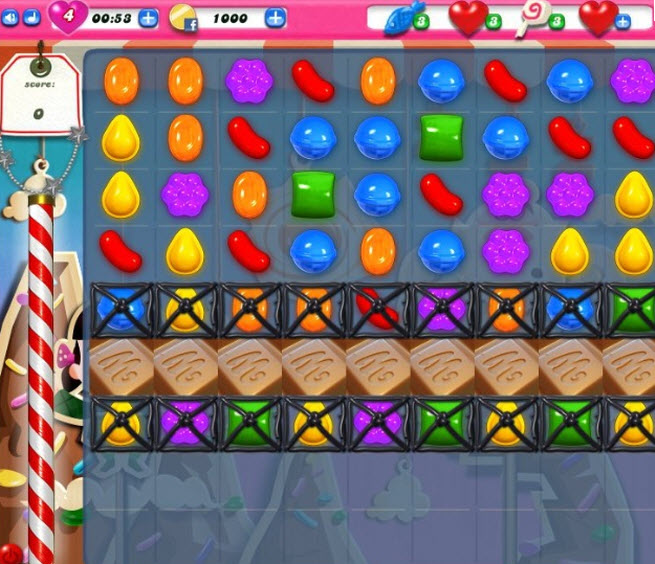Jesse Saivar is a partner at the law firm Greenberg Glusker and chair of its intellectual property department.
Much of the independent video game world is up in arms regarding the recent news that giant U.K. mobile and web game developer King.com has “trademarked” the word “candy.” Many see this as an attempt by a Willy Wonka-esque behemoth to grab control of a common word in order to crush its smaller competitors like some piece of common confectionary. While there may be some truth to that thought, as is often the case when legal issues get picked up by the blogosphere and even mass media, there are also many misperceptions clouding the debate. Because I feel that if I’m going to take a (short) break from playing Candy Crush Saga, I might as well write about it, I want to try to clear up some misconceptions.
First, King.com has not “trademarked” the word “candy.” Most nonlawyers loosely use “trademark” as a verb to indicate that a person or company has obtained a federal trademark registration for a particular word, phrase, or design. King.com has not yet reached that point. At the time of this writing, King.com merely has a pending U.S. application to register the word “candy” for a wide variety of goods and services. In other words, even using laymen’s terms, King.com has not yet “trademarked” the word “candy” in the U.S.
That being said, King has indeed successfully moved through the entirety of the United States Patent and Trademark Office’s review procedure. The USPTO has approved the application for “publication” (more on that later), meaning that the USPTO looked over the contents of the application and found nothing wrong with it and feels that the application is registrable without any changes.
This is upsetting to many people looking at this issue, especially smaller developers, who feel that no company should be able to “trademark” a common word like candy. It’s not quite that simple. A common word can indeed be the subject of valid trademark rights as long as it’s used on something unrelated to that word. If I create a brand-new kitchen cleaner and call it Candy, I can indeed control exclusive rights to use that word for kitchen cleaners because anyone seeing a common but unusually utilized word like candy on a kitchen cleaner is bound to associate it with my product.
No, the problem isn’t that the word candy is a common word … it’s that it is descriptive as used in this context. Those who are upset are intrinsically keying in on a key aspect to trademark law: No one company can claim exclusive rights in a word that is otherwise generally used to describe the product or service that company is offering. In this case, the main problem seems to be that King.com is trying to claim the exclusive right to use the word candy in the title of a game that is about … candy! If it was able to do that, it wouldn’t be able to stop developers from making games about candy (which is completely permissible under intellectual property law), but it could stop them from using candy in the title of those games.
The problem is that the USPTO is supposed to reject any application for a mark made up solely of a descriptive word. It appears to have dropped the ball in this case, which could have happened for a few reasons. First, King.com’s application doesn’t cover any candy products. In addition to games, the application covers a wide array of ridiculously irrelevant items such as “baby monitors,” “football boots,” and, my personal favorite, “hosting social entertainment events, namely, karaoke parties for others.” The USPTO just may not have thought to ask if any of those vast array of products and services had anything to do with candy. Second, King.com’s application was filed on somewhat rare grounds in that it is based on a prior existing European registration King.com owns for candy. The examiner reviewing it understood that it was already registered somewhere else and, thus, may not have analyzed it as vigorously as normal.

